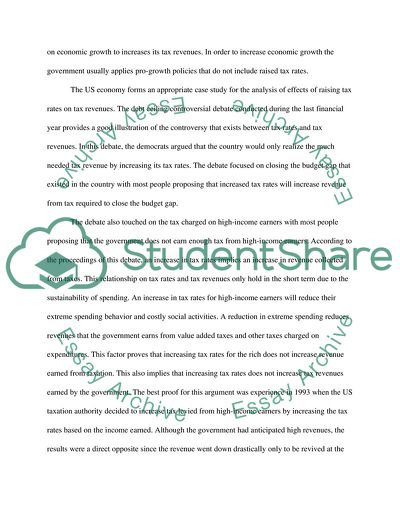Cite this document
(Does raising tax rates necessarily raise tax revenue What factors Assignment, n.d.)
Does raising tax rates necessarily raise tax revenue What factors Assignment. https://studentshare.org/macro-microeconomics/1764783-does-raising-tax-rates-necessarily-raise-tax-revenue-what-factors-affect-how-tax-revenue-changes-when-tax-rates-change
Does raising tax rates necessarily raise tax revenue What factors Assignment. https://studentshare.org/macro-microeconomics/1764783-does-raising-tax-rates-necessarily-raise-tax-revenue-what-factors-affect-how-tax-revenue-changes-when-tax-rates-change
(Does Raising Tax Rates Necessarily Raise Tax Revenue What Factors Assignment)
Does Raising Tax Rates Necessarily Raise Tax Revenue What Factors Assignment. https://studentshare.org/macro-microeconomics/1764783-does-raising-tax-rates-necessarily-raise-tax-revenue-what-factors-affect-how-tax-revenue-changes-when-tax-rates-change.
Does Raising Tax Rates Necessarily Raise Tax Revenue What Factors Assignment. https://studentshare.org/macro-microeconomics/1764783-does-raising-tax-rates-necessarily-raise-tax-revenue-what-factors-affect-how-tax-revenue-changes-when-tax-rates-change.
“Does Raising Tax Rates Necessarily Raise Tax Revenue What Factors Assignment”. https://studentshare.org/macro-microeconomics/1764783-does-raising-tax-rates-necessarily-raise-tax-revenue-what-factors-affect-how-tax-revenue-changes-when-tax-rates-change.


